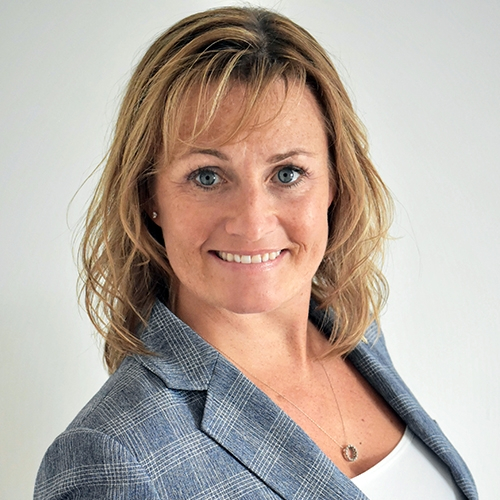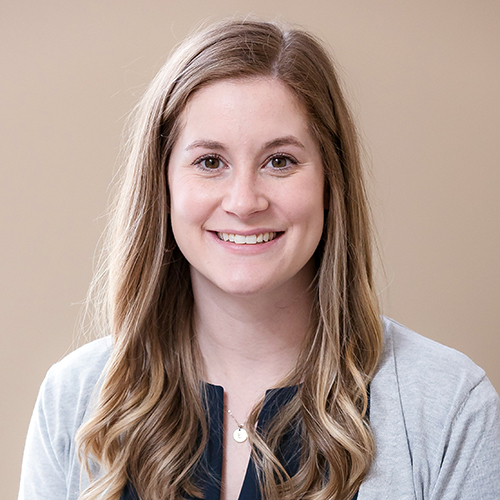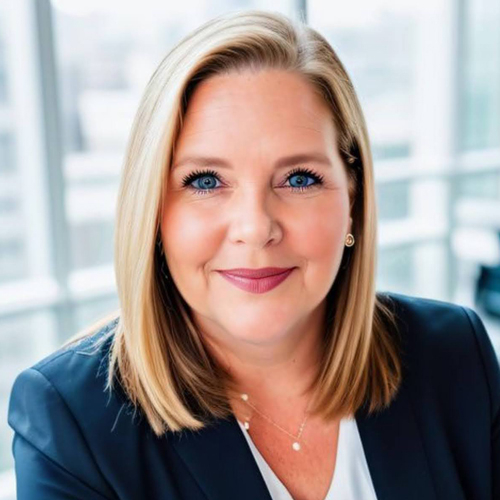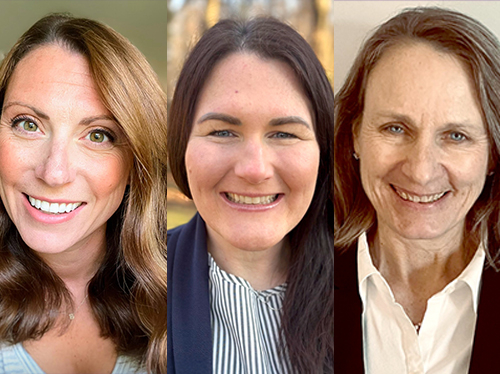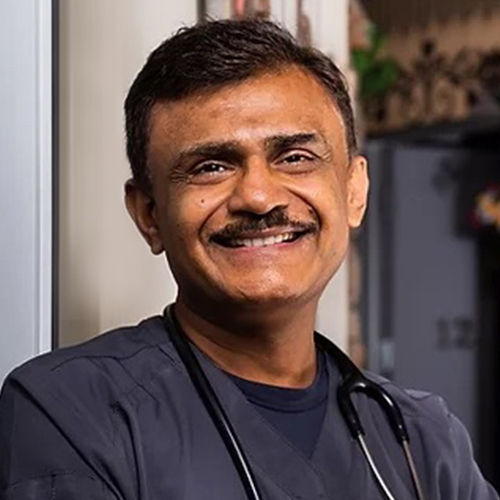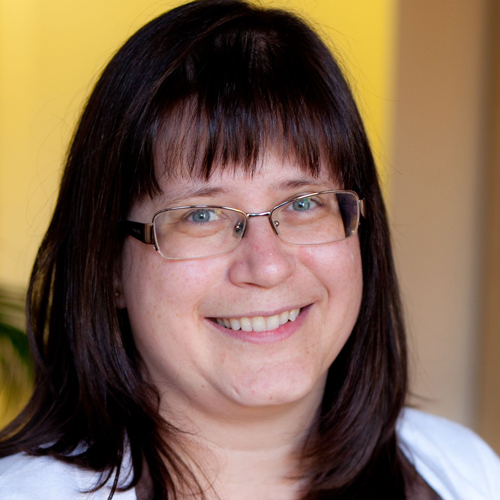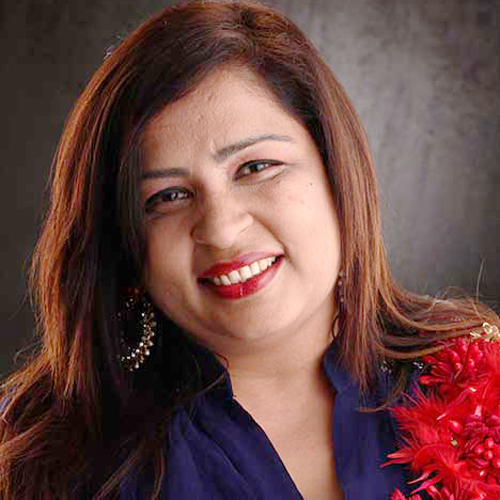 Symposium Speakers
Symposium Speakers
Every year, leading clinicians and researchers working in the field of Maternal Child Health share their expertise through our unique online learning system. Our education team works hard to provide cutting-edge, evidence-based programming.
We are pleased to present the line-up of main speakers below for our GOLD Tongue-Tie Online Symposium 2025! Join speakers from around the world to increase your knowledge and learn how to translate it to clinical practice through our interactive platform. This year, there will be 13 Speakers offering a total of 11.75 hours of education.
Click below to review further details on the speakers and each presentation.
Dee Bell is a Registered Midwife, IBCLC, and Specialist Tongue-Tie Practitioner with over 20 years of experience. She is the founder of Birth, Baby & You, a leading service offering expert feeding support and tongue-tie services across Sussex and Kent. Dee provides comprehensive care for families, offering guidance on all types of infant feeding and tongue-tie, helping parents navigate the often complex journey of infant feeding.
In 2021, Dee expanded her impact by founding The Infant Feeding Academy, an initiative aimed at empowering and educating Perinatal Practitioners. She offers specialised Tongue-Tie Training for the NHS and has developed two flagship programmes for practitioners: the Infant Feeding Coach™ Certification and the Tongue-Tie Assessor Award™. These programs provide in-depth training and support to practitioners, helping them to enhance their skills and grow their practices.
Her passion lies in supporting other practitioners, and through the Academy, Dee creates a supportive community where they can access education, resources, and connect with like-minded individuals, enabling them to thrive in their careers.
Her work continues to inspire and support many families and practitioners, reflecting her commitment to improving infant feeding outcomes and fostering a network of practitioners dedicated to helping families thrive.
Tongue-tie remains a widely debated topic in infant feeding and oral function, often leading to varying clinical opinions and management approaches. However, a skilled feeding assessment is crucial in determining the true impact of a tongue restriction and guiding appropriate intervention. This interactive session will explore real-world case studies to illustrate the importance of comprehensive feeding support before, during, and after any consideration of frenulotomy. Delegates will engage in discussions about clinical decision-making, considering anatomy, function, feeding dynamics, and the multidisciplinary role of lactation and infant feeding specialists. Through these case studies, attendees will critically evaluate diagnostic criteria, weigh the risks and benefits of intervention, and reflect on best-practice approaches that prioritise feeding outcomes and parental support. The session aims to enhance clinical reasoning and encourage evidence-based, family-centred care when supporting infants with suspected tongue-tie.
Dr. Amy Fung is a general practitioner and has become an International Board Certified Lactation Consultant since 2009. She has germinated interest in lactation management during the period she worked in government Maternal and Child Health Centre. The passion has been deepened after fully breastfed her three children. Her particular interests are feeding and sleeping issues of infant and young child; breast pain and recurrent mastitis of lactating women.
She has passion for breastfeeding education. She was the course director of the “train-the-trainer” Breastfeeding Course organized by World Health Organization UNICEF in 2014. She contributed the production of the Self Learning Kit on Breastfeeding for Health Professionals published by Department of Health in 2011. Lactation training for health care workers and infant feeding talks for publics are conducted regularly.
She advocates breastfeeding via writing, social and mass media. She is the author of a Chinese written breastfeeding book 《母乳餵哺,知易行難?》ISBN 978-988-8484-51-5 published by Arcadia Press Limited. She was the editorial board member of the E-Newsletter of UNICEF Baby-friendly Hospital Initiative Hong Kong Association for 6 years; and the author of breastfeeding column in local newspaper Ming Pao for 3 years.
Tongue-tie management in breastfed infants can create controversy because there is no uniform acceptable diagnostic criteria and there's a lack of consensus for treatment. The prevalence of tongue-tie and the frequency of performing frenotomy has been increasing significantly worldwide in the last twenty years. Some medical practitioners and researchers are concerned that infants and children are being overdiagnoses and overtreated with tongue-tie.
The findings of anatomical dissection studies of human lingual frenulum has drawn our attention to rethink the definition of tongue-tie and potential risks of frenotomy. A comprehensive approach to managing breastfed tongue-tie infants could protect against premature termination of lactation and hence safeguard infant and maternal health. It includes thorough assessment of the mother-child dyad, provision of non-surgical treatment options and helping parents make informed decision about frenotomy. Healthcare professionals should achieve a balance, avoid over- and underdiagnosis so as to prevent over- and undertreatment.
Dr. Jenna Davis is an internationally recognized chiropractor, educator, and speaker specializing in preconception, prenatal, postnatal, and pediatric care. She is the owner and clinical director of Acorn Family Health and Wellness Centre in Oakville, Ontario, where she leads a multidisciplinary team focused on optimizing health and function for families.
Dr. Davis is the creator of the P.I.P.S. Technique (Pediatric Intraoral Palate Specific Technique), a specialized approach for pediatric TMJD, tongue-tie, lip-tie, dural tension, and oromotor challenges. She trains and certifies healthcare professionals worldwide, advancing care for infants and children.
A sought-after speaker, Dr. Davis has presented across North America, Australia, and Europe at leading conferences for chiropractors, dentists, airway specialists, medical doctors, pediatricians, and oral care providers. Her engaging, research-driven presentations cover pediatrics, tongue and lip ties, oral function, childhood development, primitive reflexes, neurodevelopment, women’s health and family wellness.
Committed to lifelong learning and evidence-informed practice, Dr. Davis continuously expands her expertise to provide cutting-edge insights and actionable strategies for both patients and healthcare professionals. Her mission is to elevate healthcare standards for children and families worldwide.
Oral dysfunction and tongue-tie are often viewed through a localized lens, yet their impact extends throughout the entire body, shaping both neurological function and structural adaptation. This presentation takes a dynamic, research-driven approach to exploring how the brain and body respond to altered tongue function, from infancy through adulthood. Using recent research, we will examine the deep interconnectedness between the cranial, spinal, fascial, airway and neurological systems--revealing how tongue position can influence everything from postural stability to dural tension to learning, neurodevelopment and movement patterns. We will include the relationship between tongue function, TMJD, postural distortions, nervous system and vagal tone adaptation, illustrating how these patterns manifest across different stages of development. Attendees will gain valuable insight into recognizing these adaptations in real time, using key observational markers and simple assessment strategies. Finally, the discussion will highlight a collaborative, multidisciplinary approach to addressing these complex adaptations -- helping practice members move beyond compensation and toward thriving, resilient function.
Molly found her passion for breastfeeding support shortly after graduating college with a degree in speech pathology. It was then that Molly discovered you can help feed babies for a living and she knew that's exactly what she wanted to do. Molly sat for her board exam in 2016 and has been working in private practice ever since. Molly is committed to providing inclusive and comprehensive lactation care to all families that I consult with. Molly provides unique, evidence-based support to families so that they may make their own informed choices in infant feeding. Molly's focus is to meet families where they are at and support them in a judgment free way that puts their mental health first. When Molly is not working, she enjoys spending time with her amazing husband and daughter. Molly loves being outside, attempting to bake something in the kitchen, and drinking copious amounts of coffee.
In this presentation, we will review the role of the IBCLC when it comes to creating realistic timelines and expectations while supporting the breastfeeding dyad when the baby has oral restrictions. For some clients, this may look like preparing for a release while working to protect the lactating parents' milk supply and ensuring that the baby is gaining weight appropriately. Then continuing to support them after a frenectomy to get the baby feeding functionally and finally "graduation" from care. While for others who are not open to a frenectomy, this may be supporting them to get the baby feeding as functionally as possible, while setting realistic expectations for what that means for their feeding journey. The goal is to create optimal and realistic outcomes specific to each family to help them meet their feeding goals while also ensuring that they feel supported and heard every step of the way.
Nancy Calamusa, MA, CCC-SLP, is a dedicated speech-language pathologist with close to 4 decades of experience in neonatal-pediatric care. Specializing in the assessment and treatment of feeding & swallowing disorders in neurologically impaired children, she is passionate about improving not only feeding & swallowing outcomes but helping to heal the whole child. Nancy earned her bachelor’s degree in Speech Science from Rutgers University and received her master’s degree in Speech Pathology from Kean University. She holds the Certificate of Clinical Competence from ASHA and has multiple advanced level certifications for treatment of the pediatric patient. Nancy currently owns and operates New Jersey Pediatric Feeding Associates since its inception in 2005.
Nancy recently closed her brick & mortar operation to pioneer the first global traveling intensive feeding/swallowing program specializing in children with pediatric brain injuries. She is licensed in 10 states and is registered to practice in 3 countries. Nancy developed the first intensive dysphagia program focusing on the role of neuroplasticity in feeding & swallowing while providing individualized therapy. Her goal is to promote safe exposure to oral eating while educating and training parents and caregivers to safely and confidently deliver feeding & swallowing therapy at home. She collaborates with interdisciplinary teams globally to ensure holistic & unified care for the patient. Outside of her professional endeavors, Nancy enjoys advocating for children’s health and participating in community outreach programs.
This presentation will explore the complexities of birth-related/acquired brain injuries and the occurrence of tongue ties in neonates/children. It highlights the significance of accurate differential diagnosis in identifying oral restrictions, which may lead to more involved feeding difficulties and other complications if left unrecognized. This presentation will review current research on the prevalence of tongue ties, associated risk factors, and the impact on feeding, swallowing, and oral musculature development in the child with a brain injury. By analyzing clinical signs, diagnostic methodologies, and treatment options, healthcare professionals can improve their diagnostic accuracy and treatment approaches for affected children .Emphasis is placed on the importance of interdisciplinary collaboration in assessing and addressing tongue ties effectively. References to pertinent literature and case review are provided to support clinical decision-making and enhance the understanding of this topic.
Heather McCormick is a speech language pathologist and certified lactation counselor who has worked in early intervention for the last 14 years. She has specialized in infant feeding for the last 5 years, specifically focusing on the area of ankyloglossia. Heather combines her knowledge and experience as an SLP and CLC to meet the goals of families who are undergoing treatment at the Kennedy Krieger multi-disciplinary TOTs program.
Sarah Miller has over 10 years of experience as a clinical social worker (LCSW-C) and has worked with children and parents during her career. She began working at Kennedy Krieger Institute in 2017 and has been the mental health therapist with the TOTs Clinic since 2020. In 2021, she received her certification in perinatal mental health (PMH-C) through Postpartum Support International. Sarah helps increase access to perinatal supports, which includes offering individual mental health therapy to parents, community resources and postpartum parent resources, so families receive well rounded care and during this crucial period. Sarah also helps manage the clinic’s Quality Improvement Project and is Qualtrics Level 1 certified. Sarah and the TOTs team recognize the emotional impact pediatric feeding challenges have on families and use training and collaboration among all the teams to ensure families feel supported during their time in the clinic.
Erin Boland, PT, MA is a licensed physical therapist with over 30 years of clinical experience primarily in pediatrics. Erin has worked extensively with the early intervention population, including a focus on home-based, family centered treatment model. Her training and experience with manual therapy interventions resulted in her specializing in treating infants with feeding difficulties with related musculoskeletal, postural and developmental issues. Erin has been working at Kennedy Krieger Institute in the Tethered Oral Tissues (TOTS) clinic for that last 7 years. As a member of the TOTS multi-disciplinary clinic, Erin has worked closely with feeding therapists and a perinatal mental health counselor to help optimize outcomes and meet the needs of the families undergoing a stressful time in their lives.
This presentation will provide information about identification and impacts of Tethered Oral Tissues (TOTs) on breast and bottle feeding, movement and gross motor development, and caregiver stress. Goals and treatment techniques will be briefly presented along with information about a multi-disciplinary co-treatment model addressing needs of infants and their families. Research pertaining to the field of tethered oral tissues will be reviewed and information from an ongoing quality improvement project will be presented.
Dr. Agarwal went to medical school at All India Institute of Medical Sciences, AIIMS, in New Delhi, which is the premiere institution for medical training in India. After which, he came to the United States for his Pediatric Residency at the University of Texas Medical Branch at Galveston. Subsequently went on to join the Pediatric Nephrology fellowship at University of Florida at Gainesville. Under the program, he also conducted bench research at Ohio State University. Dr. Agarwal worked on the Eastern Shore of Virginia for eight years in general pediatrics before moving to Arizona to establish Agave Pediatrics in 2005. Over the years Dr. Agarwal has developed his own style of practicing pediatrics, which is strongly supportive of natural ways of taking care of children and emphasis on breastfeeding. During his practice, he realized that one of the biggest impairments in breastfeeding was the presence of labial and lingual ties. Having performed some procedures during medical school, he re-educated himself about the procedure and started performing them in 2007. In the last 15 years, Dr. Agarwal has performed more than 18000 frenotomies. Now, along with a busy clinical practice, he has made it his goal to spread the awareness about the issues related to labial and lingual ties to pediatricians, lactation consultants, doulas, midwives -everybody who helps mothers with the process of breastfeeding and in taking care of children with feeding and speech difficulties.
Frenectomy can help with the breastfeeding dysfunction that is associated with ankyloglossia. Successful return to breastfeeding and improvement of symptoms for the dyad is the goal of the procedure. The procedure can cause significant anxiety in parents who often resort to reaching out on social media and getting inadequate and incorrect information. Appropriate medical and lactation evaluation is important for patient selection to ensure both medical appropriateness of the procedure and family readiness. Once the decision is made with input from both the physician and lactation professionals, pre and post procedure information and support plays a vital role in the success of the procedure. Learn more about what should be taken into consideration when deciding if and when to proceed with frenectomy, pre-fenectomy preparation of the family and post-frenectomy management and support.
Reka Morvay is a Hungarian-American IBCLC with a Masters degree in Psychology from Cornell University who has been working with families in the perinatal period for almost 20 years. She started her career as a lactation consultant, childbirth educator, doula and community organizer in Budapest, Hungary where she ran the hugely successful Budapest Moms community for English-speaking families in Hungary, and founded a number of still-thriving professional communities on social media. After moving back to California in 2014, she worked in a variety of settings including hospital inpatient, hospital outpatient, community clinic, non-profit breastfeeding coalition and private practice. She is particularly proud of her work with BreastfeedLA as an instructor and curriculum writer, and the Inland Empire Breastfeeding Coalition as their education grant project manager. Currently, she is working full time as an inpatient lactation consultant at Cedars Sinai Medical Center in Los Angeles. Evidence-based lactation with an eye to clinical application remains her passion. Her primary area of interest is the behavioral ecology of lactation, which is the intersection of evolutionary biology, physiology, neuroscience, and anthropology as it relates to human lactation.
IBCLCs play a crucial role in supporting breastfeeding parents, particularly when tongue tie affects infant feeding. This presentation explores the IBCLC’s scope in identifying and managing tongue ties while navigating institutional policies, counseling overwhelmed new parents, managing the limitations imposed by short hospital stays, navigating potential resistance from physicians, and working around the lack of interdisciplinary collaboration. We will examine how to standardize assessment and recommendations across hospital staff, how to communicate the information to parents regarding their feeding options, how to support parents in their choice while ensuring baby’s safety, and how to provide resources for lactation support after hospital discharge. Effective counseling strategies will be reviewed, focusing on empathetic communication, parental education, navigating differing medical opinions and available options. The goal is to equip IBCLCs with tools to provide evidence-based guidance while fostering informed decision-making for families. Attendees will leave with a deeper understanding of how to support breastfeeding dyads within the hospital framework, ensuring a balanced approach to tongue tie management.
Tash is an Occupational Therapist trained in Orofacial Myofunctional Therapy, paediatric feeding, infant and early childhood sleep quality and infant reflux. She's also a Mum of three and the founder of Whole Child Co.
She is passionate about early intervention in the airway and oral function space to prevent the snowballing of issues that can arise, experiencing this firsthand with two of her children. Her dream is that sleep quality and airway development become part of mainstream healthcare advice and intervention to truly set up our children for the best start in life.
Achieving optimal oral rest posture and nasal breathing is a critical yet often overlooked aspect of recovery after tongue-tie release. This presentation explores the role of orofacial myofunctional therapy (OMT) in supporting post-frenectomy healing, enhancing tongue function, and promoting long-term oral and respiratory health, through optimizing oral rest posture and promoting nasal breathing. Following a tongue-tie release, myofunctional therapy plays a key role in wound healing, reducing the risk of reattachment, and guiding the tongue into functional patterns that maximize its newly gained mobility. We will discuss how neuroplasticity supports the integration of new movement patterns and how targeted exercises can reinforce proper tongue posture. Correct oral rest posture—where the tongue rests against the palate, lips are closed, and nasal breathing is maintained—has profound effects on sleep quality and thus overall health. We will examine the impact of tongue posture on airway function, nasal breathing, and the downstream effects on sleep quality. Participants will understand how therapy optimises surgical outcomes and ensures that the tongue’s newfound mobility translates into improved orofacial development, respiration, and sleep.
Tine Greve is a midwife since 1991, IBCLC since 2000 and she has a bachelor in Traditional Chinese Medicine in Acupuncture from 2014. She has a focus on helping mothers preparing for physiologic birth and breastfeeding. She has previously been working in an Alternative Birth Care Centre in Oslo for many years.
She is currently working with counselling breastfeeding women in a multidisciplinary health care centre for mothers and babies where she has specialized in breastfeeding difficulties due to tongue-ties and motoric challenges. She is also a volunteer breastfeeding counsellor for “Ammehjelpen”, the Norwegian Mother-to-Mother support group for breastfeeding counselling (resembling La Leche League).
She has for many years been teaching in educational programs on breastfeeding for midwives, NICU-nurses, nurse-assistants, health care visitors etc. on a national level in Norway.
Tine Greve is an experienced speaker at international conferences such as ICM, Midwifery Today, ICAP Professionals, Nordic Midwifery conferences, Nordic Breastfeeding conferences, ILCA/VELB etc. She has been teaching and have had workshops in USA, Canada, Egypt, Ghana, Australia, Russia, Germany, The Netherlands, UK, Denmark, Sweden, Norway, Finland, Iceland, Slovenia, Bulgaria, Austria, Belgium and France.
During the last couple of years there has been an increasing focus on (breast)feeding difficulties due to tongue-ties in infants. Many mothers experience breastfeeding challenges and sometimes an unwanted, and unnecessary, breastfeeding cessation. Some infants even struggle with bottle-feeding. At the same time, an increased focus of tongue-ties being related to (breast)feeding difficulties may also lead to over-diagnosing and/or over-treatment. I will go through the main symptoms of tongue-ties and motoric restrictions in healthy babies that can be connected to or affect the (breast)feeding situation. I will look at the primary assessments that can help evaluate the most likely cause of the symptoms based on (breast)feeding history, examination of the baby and (breast)feeding observation. I will make suggestions for further treatment and counselling based on the findings. Have you ever seen things get worse after a tongue-tie release? Not all babies are ready for release at the time of the actual diagnosis. I will look at factors that contribute to predicting immediate outcomes of a release and suggest recommended pre-release treatment and plans for optimizing the chance of success.
Dr Zinal Unadkat Shah, MBBS, DCH, IBCLC, is a Pediatrician, lactation consultant, and neonatologist based in Mumbai, India. Her hybrid practice encompasses three hospitals, a private clinic and virtual consultation to mother-baby dyads from all over the world. Beyond clinical practice, Dr Zinal collaborates with the government and international bodies such as UNICEF and the Breastfeeding Promotion Network of India (Maharashtra) to address the challenges of breastfeeding, infant care, and malnutrition at its grass root level.
Though she exclusively breastfed her daughter when she had major speech issues and gait issues she realised that her daughter had a posterior tongue tie undiagnosed and got her release and Myofunctional therapy done at her age 20
Tongue tie became so close to her heart that she is now working in capacity of paediatrician to identify tongue ties early to prevent long term consequences in children.
Driven by the recognition of inadequate lactation support available in her country, she has dedicated herself to ensuring that mothers receive breastfeeding assistance and education. She has been a practising IBCLC for the last 15 years and was amongst the first few to be certified in India. Her multifaceted work in lactation management spans various settings, including NICU, labour rooms, postpartum ward, and post -surgical intensive care units.
Assuming the role of India Coordinator for the IBLCE in 2019 till 2024 Dr Zinal has played a pivotal role in cultivating a robust community of lactation consultants across India. Her efforts have not only increased accessibility to lactation services but have also deepened the nation's understanding and appreciation of this crucial aspect of maternal and child health.
Understanding the fascinating connection between posture and the fascial system is an important part of understanding the long-term impact of untreated tethered oral tissues. Learn more about how the fascial system develops as a child grows and its impact on infant feeding due to airway compromise. Explore how tongue posture influences the development of the jaws and airway, contributing to issues such as dental malocclusions, sleep-disordered breathing, TMJ disorders, clenching, and grinding. We will look at compensations across different age groups into adulthood, including challenges with feeding, air swallowing, habitual behaviors, bowel dysfunction, growth delays, developmental lags, transitions to solid foods, picky eaters, speech dysfunctions, breathing & airway development, sleep disordered breathing , sleep apnea , muscular tightness and behavioral patterns including ADHD. Case studies will be reviewed to help consolidate learning about the practical impacts of tethered oral tissues (TOTS), particularly when tongue ties are undiagnosed or improperly treated.
 Dr. Speakers Full Name
Speaker Credentials
Dr. Speakers Full Name
Speaker Credentials
Annet Mulder first became interested in breastfeeding in the year 2000, when she became a mother for the first time. During and because of her own breastfeeding experiences, in 2002 she became a volunteer with the Dutch breastfeeding Organization and in 2008 sat for and passed the exam administered by the International Board of Lactation Consultant Examiners. As an International Board Certified Lactation Consultant, she now
Annet Mulder first became interested in breastfeeding in the year 2000, when she became a mother for the first time. During and because of her own breastfeeding experiences, in 2002 she became a volunteer with the Dutch breastfeeding Organization text text text text more name mulder first became interested in breastfeeding in the year 2000, when she became.
 Dr. Speakers Full Name
Speaker Credentials
Dr. Speakers Full Name
Speaker Credentials






